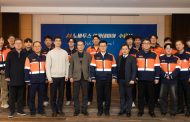The Korea Supercomputing Youth Camp 2015, which took place on the UNIST campus from August 3 to 7, is a week long intensive conference that offers students and teachers a unique opportunity to work with advanced research technology not usually available in a typical classroom setting.
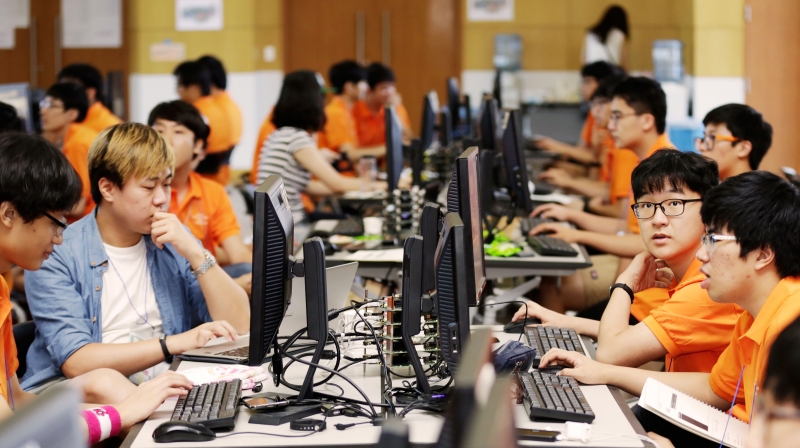
During the course of the event, oarticipants had an opportunity to use supercomputers for practical applications.
This is a special education program, specifically designed for high achieving science-gifted students who like science, engineering, mathematics or computers. A total of 63 gifted achievers from 7 gifted high schools nationwide partook in this event to expose themselves to a university setting and to the topics and activities that comprise the field of high performance computing.
The conference will kick off Monday with a special lecture by Director Sung Yeob Kim (School of Mechanical and Nuclear Engineering), providing an introduction to basic concepts of high performance computing (HPC). During the course of the event, participants had the opportunity to listen to keynote speakers, discussing both insights and challenges inside the world of supercomputing. This will include multiple breakout sessions, presentations, and a chance to work hands-on with a number of UNIST professors, as they learn how to build a Beowulf cluster from scratch.
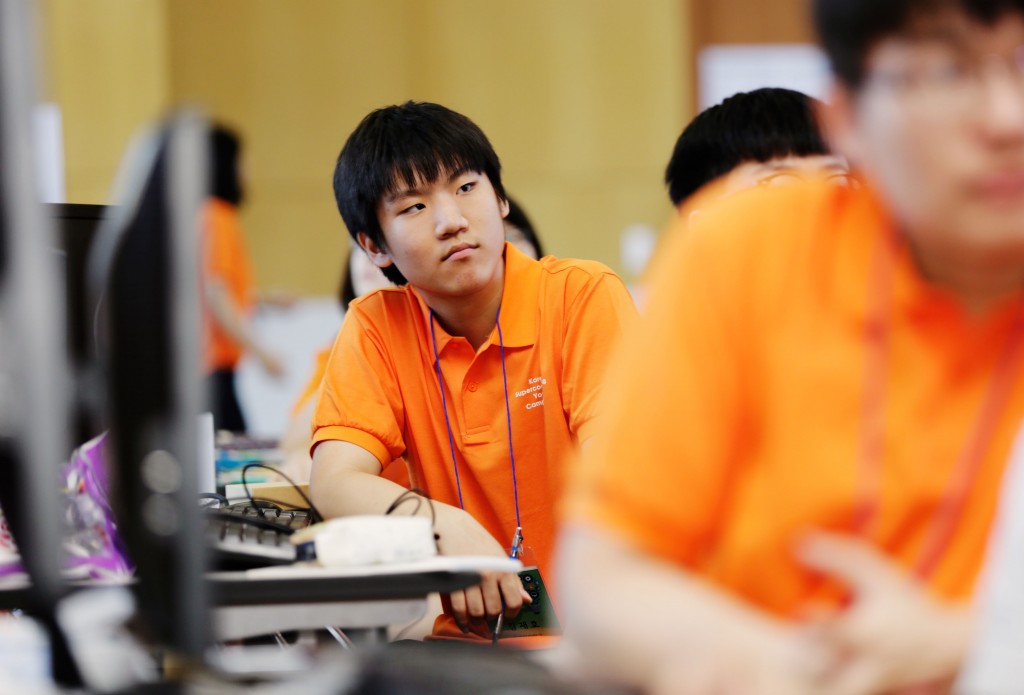
Students are paying attention to a special lecture by Director Sung Yeob Kim (School of Mechanical and Nuclear Engineering).
Working in small peer teams, the students had an opportunity to use supercomputers for practical applications such as solving complex science and engineering problems.
The third day of the event featured a keynote speech by Prof. Jae-jin Lee of Seoul National University, the inventor of the very first Korean supercomputer, named ‘Cheondung (Thunder)’. The entire program wrapped up on Friday with a few more workshops and panels, allowing students to participate in a formal panel discussion to present their final projects. The intent of the panel sessions is to gather opinions and ideas from individuals of all positions.
The Supercomputing Youth Camp 2015 is the first annual event, organized by UNIST and Korea Institute of Science and Technology Information (KISTI) and has been supported by the Ministry of Science, ICT and Future Planning (MSIP), KSCA (Korean Supercomputing Center Alliance), and PLSI (Partnership and Leadership for the Nationwide Supercomputing Infrastructure).


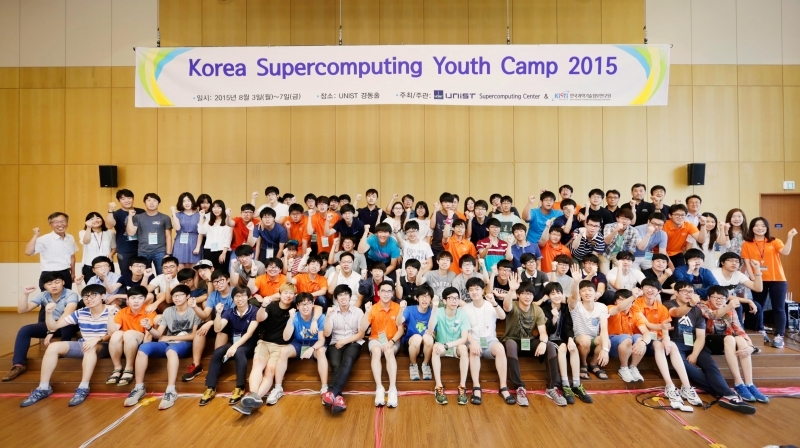



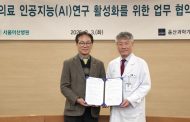
![[2026 Matriculation] UNIST Welcomes Class of 2030!](https://news.unist.ac.kr/wp-content/uploads/2026/02/사진-박종래-UNIST-총장이-2026년-입학식사를-전하고-있다-2-190x122.jpg)
![[2026 UNIST Commencement] UNIST Confers Degrees to 883 Graduates](https://news.unist.ac.kr/wp-content/uploads/2026/02/사진-2026학년도-UNIST-졸업생들이-학사모를-위로-던지며-졸업을-축하하고-있다-1-800x413-190x122.jpg)
